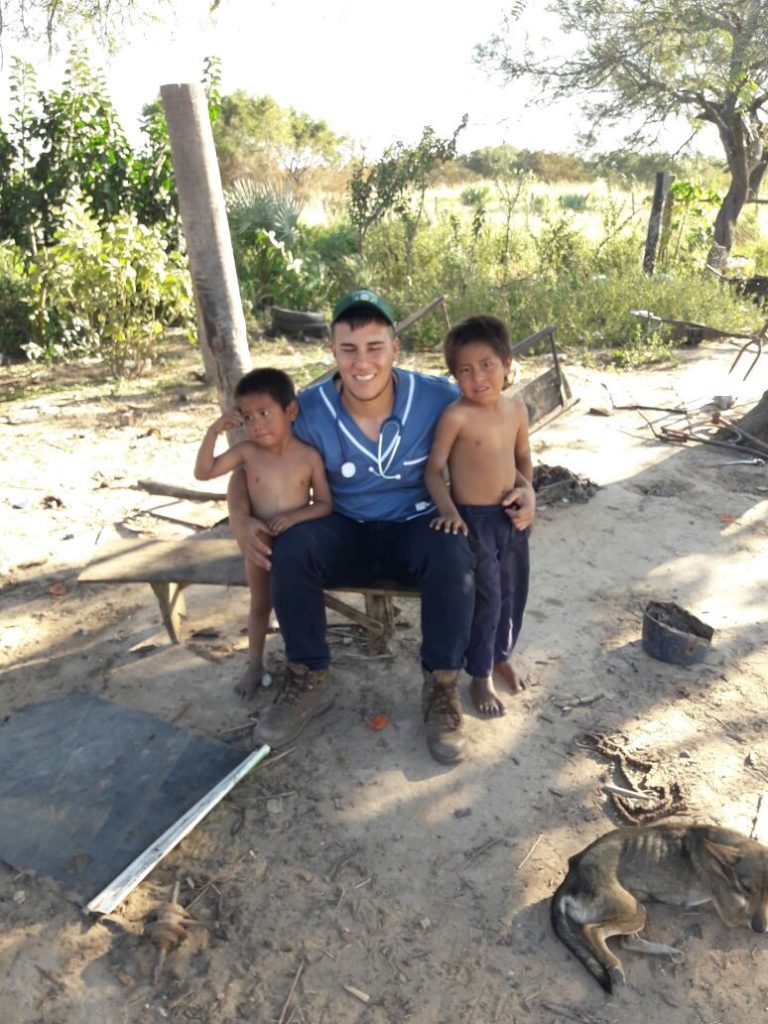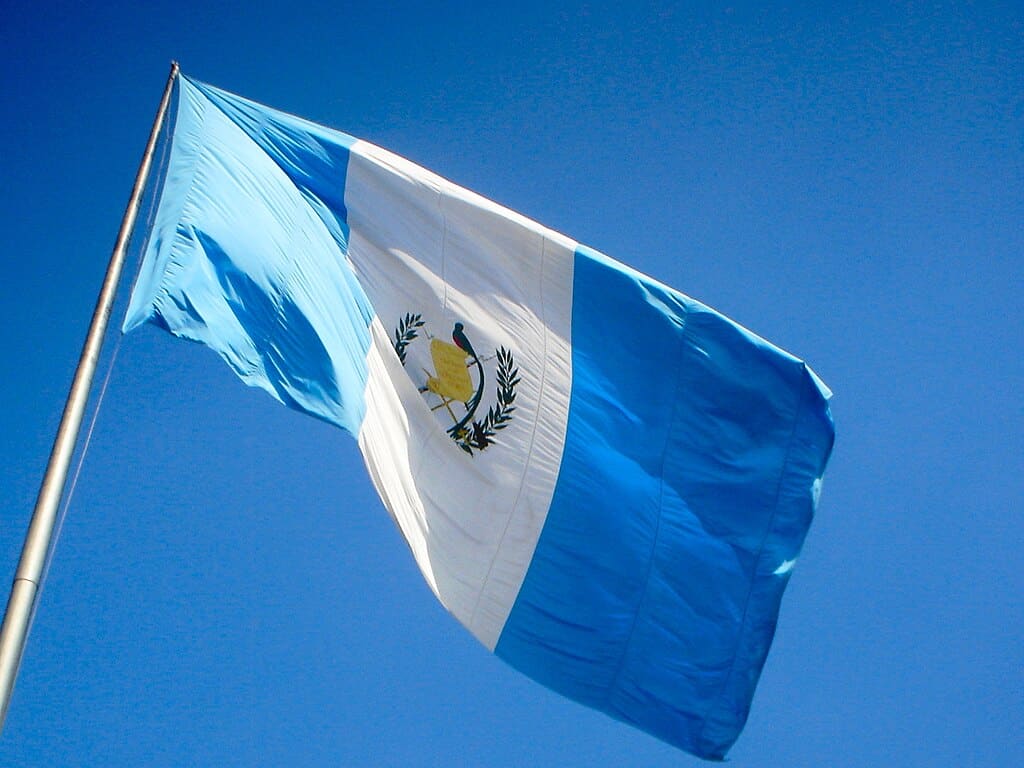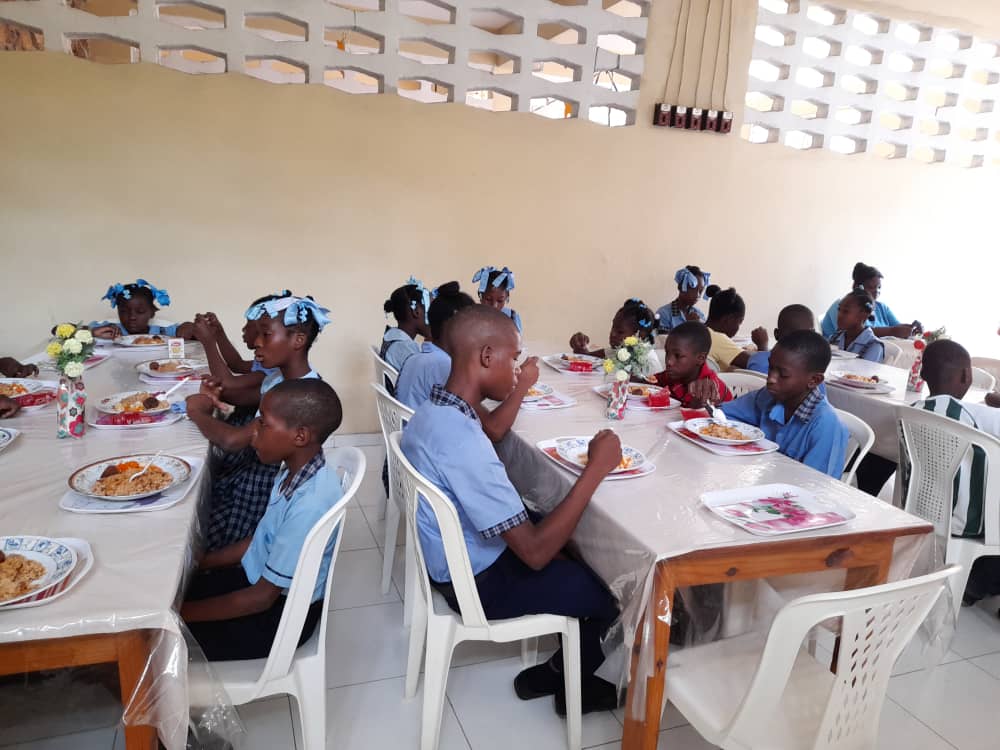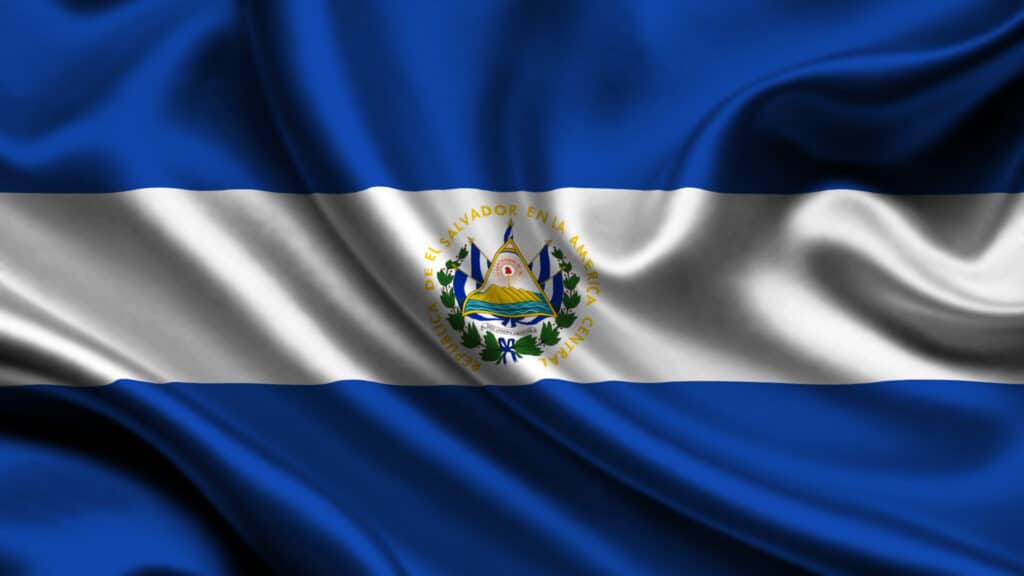Friendship Mission
Paraguay
Read the latest update from Friendship Mission
Friendship Mission in Paraguay was founded in 1953 by the United Christian Missionary Society (predecessor of the Division of Overseas Ministries) and by graduates of the International School in Paraguay, the first Disciple mission in Paraguay, founded in 1917. The original purpose of Friendship Mission was to attend to needs of the urban poor living near the Mission and in Asuncion, the capital city of Paraguay.
With the commitment and energy of Disciples missionaries in the mid-1960’s, notably the work of Raymond and Betty Mills, Friendship Mission grew in vitality and the reach of its programs expanded. Besides offering basic social services to poor families, Friendship Mission began the first school for the deaf in Paraguay. The Friendship Mission Clinic was an important program founded in this period, along with educational opportunities for community children and adults.
Today Friendship Mission is actively engaged in programs which are critical to the community.
- Friendship Mission Clinic: Each year over 33,000 people are assisted by physicians and specialists at the clinic and receive outpatient services, laboratory, radiology, and ultrasound. Friendship Mission is well known in Paraguay for offering high quality medical attention at reduced costs.
- Betty and Raymond Mills School of Nursing: Approximately 35 new students begin studies each year to become nurses’ aids. At the end of the academic year, about 25 students have successfully completed the curriculum. As most health care providers in Paraguay work in the cities, the School of Nursing at Friendship Mission trains women from rural areas who will go back to carry out their profession in their rural home villages as primary health providers. While studying, nursing students do field work in the Santa Maria neighborhood from which the clinic at Friendship Mission draws many patients. One of the most recent areas of work of the nursing students in the community has been around the causes and the prevention of dengue fever. They also offer educational sessions on health-related matters to children participating in the Friendship Mission Street School.
- Work with the Elderly: Friendship Mission holds weekly meetings and activities for elderly members of the local community. The group offers times of fellowship for the members, as well as artistic opportunities, and a nutritious snack. The group celebrates members’ birthdays and participates in community fairs, where they offer food and their artwork, especially art in paintings on fabric, for sale.
- Work around Domestic Violence: Friendship Mission works with other church and social organizations to educate about issues of domestic violence. They carry out day-long workshops about the impact of domestic violence on women and children, and preventive community-based actions and programs that are available.
- School on the Street: Friendship Mission reaches out to children who spend most of their time on the street because they are working children or because they are children who live on the street. Over 300 of these children each year receive dental and general medical attention at the Friendship Mission Clinic, including services of radiology and lab analysis. Friendship Mission nursing students carry out workshops with groups of working and street children on hygiene and other health-related themes. Such meetings are carried out on Saturdays and also offer times of fellowship and recreation for the children. Several times each year groups of working and street children are taken to the Disciples of Christ Jack Norment Camp outside of the city for weekends of fun and fellowship.
- Holistic Welfare Assistance Center: This program began in August 2000 and consists of a team of professionals which offer therapy to community clients.
- Children’s Workshops: Sessions are offered in painting, puppet making/theater, guitar, and recreation to community children as well as to those participating in the School on the Street and children from nearby Disciples congregations. The classes take place on Saturday mornings. Special community fairs, music festivals, and celebrations are prepared by the children for the community. International School graduates help in this work with these children as volunteers.
The Friendship Mission had been treating the entire community, including those in outlying neighborhoods of Greater Asuncion and other cities with equipment purchased in 1986. There were frequent mechanical problems that were delaying important medical and dental care to their patients.
With $17,000.00 provided by Global Ministries, the Friendship Mission dental clinic acquired:
- 2 New Full Dental Chairs
- 2 New Leaded Vests for dental radiographs
- 1 Photopolymerizer Laser bleaching treatment
- 1 Bicarbonate jet injector
With the completion of this project the Friendship Mission Clinic is better equipped to serve more than 25,000 patients including about 6,080 dental patients and 1,300 children each year.
Update
Betty and Raymond Mills Higher Technical Institute
The Betty and Raymond Mills School of Nursing is now named the Betty and Raymond Mills Higher Technical Institute. Training for nursing aides is offered there, and there may be other courses offered in medical technology in the future. The Institute currently has a total of 30 first year students and 22 second year students. Friendship Mission prioritizes the growing of a scholarship fund in order for this number of students to grow to approximately 60 to 70 individuals per class. Scholarship support is needed to help students. The average cost for a nursing student for the two year program is $1,400. This includes tuition, books, materials and uniforms.
The school is hoping that a scholarship fund may be reinforced in the near future to help the more economically challenged students find a way to complete their nursing training. This fund would then be repaid by the former students in order to support new students.
Update January 2016
Friendship Mission Clinic
The Friendship Mission Clinic continues to provide high quality services in dentistry, laboratory analysis, radiology, and ultrasounds at a reduced cost for populations in need in the greater urban area of Asuncion, Paraguay. In addition to these services, the clinic has developed a vaccination campaign in partnership with the Paraguayan Ministry of Public Health and Social Welfare. Finding success in this campaign, the Friendship Mission Clinic now offers vaccinations to the public, which are subsidized by the Ministry of Public Health and Social Welfare.
The Friendship Mission Clinic seeks to expand its services, in order to better reach communities that have little access to health care. In order to begin expanding their services, the Friendship Mission Clinic is raising funds to acquire an ambulance. This ambulance will assist in quicker response times to emergency calls, increased efficiency in transporting patients to larger hospitals when necessary, and offering preventative and primary care in remote communities.
Friendship Mission Higher Technical Institute
Friendship Mission’s Higher Technical Institute continues to offer economically-viable, two-year degree and certificate programs, primarily in the field of health. The Nursing Assistant program, the only degree program offered when the Institute was formed, has now formalized a partnership with the University of the Pacific. This partnership provides students, who have completed their two-year program with Higher Technical Institute, direct admission to the University of the Pacific for an additional year of study for a higher degree. Graduates of this program as well as the original two-year program are now working in their field at both state and private hospitals.
One reason the Higher Technical Institute is able to provide courses and degrees at a low cost to students is because the Institute offers scholarship aid for students in challenging circumstances. These scholarship funds are replenished through former students and scholarship recipients, as well as from grants from Global Ministries and other international partners.
Update: December 2017
Following the rural-focused outlook of the nursing program at its school, Betty and Raymond Mills Higher Technical Institute, Friendship Mission continues to expand its medical services to populations outside of urban settings.
The Chaco Plain, or Gran Chaco, is an area of fields and dense forests spanning over 200,000 miles across the borders of multiple countries in South America. Around 100,000 Paraguayans live in this region, most of whom are indigenous peoples residing in remote villages. Without their own clinics or adequate funds to hire licensed professionals, the villages had very limited access to modern healthcare.
However, thanks to Friendship Mission, the villagers now have opportunities to learn about their personal health and how to manage symptoms of illness from a contemporary medical perspective. Through Friendship Mission’s new project, doctors have been traveling to the Gran Chaco periodically to make on-site visits to the villagers. In collaboration with village leaders and local experts in traditional medical practice, many indigenous communities have benefitted from modern medical health exams and treatment provided free of cost to people of all ages. Donations from Global Ministries have provided wages for the traveling doctors, gas for the van, and medical supplies, in addition to covering administrative costs.
Operating a mobile healthcare service requires a flexible schedule, as a major challenge for this project is efficient transportation. The Gran Chaco villages are over 260 miles away from the nearest city, and driving on dirt roads can be especially difficult during the rainy season. Some roads go through land belonging to ranches, which restrict access to vehicles during bad weather in order to protect the well-being of their animals. Furthermore, the project lacks a dedicated vehicle to function as an ambulance for transporting urgent-care patients to city hospitals. Patients would also benefit more if on-site treatment could be provided by specialist doctors for cases in women’s health, pediatrics, and eye care that require extra expertise.
Another concern is maintaining an adequate supply of medications. A pharmaceutical laboratory has donated some medications to the project, but a greater variety is required for treating the different illnesses present in the patients. Currently, Friendship Mission purchases a significant portion of the medication given to Gran Chaco patients.
One of the employees who joined Friendship Mission specifically for this project stated that he had worked for non-profit medical organizations before, but that Friendship Mission was the first one to provide services to the remote areas of the Gran Chaco. He also commented that he was impressed by how well the project was planned. Patients and local leaders of Gran Chaco villages have also given positive feedback about the project. They expressed their appreciation for Friendship Mission’s help and their eagerness to continue participating in the project.
Global Ministries welcomes donations for the continuation of this project and extends thanks to all those who have given towards the improvement of healthcare for rural populations.
Update: December 2018
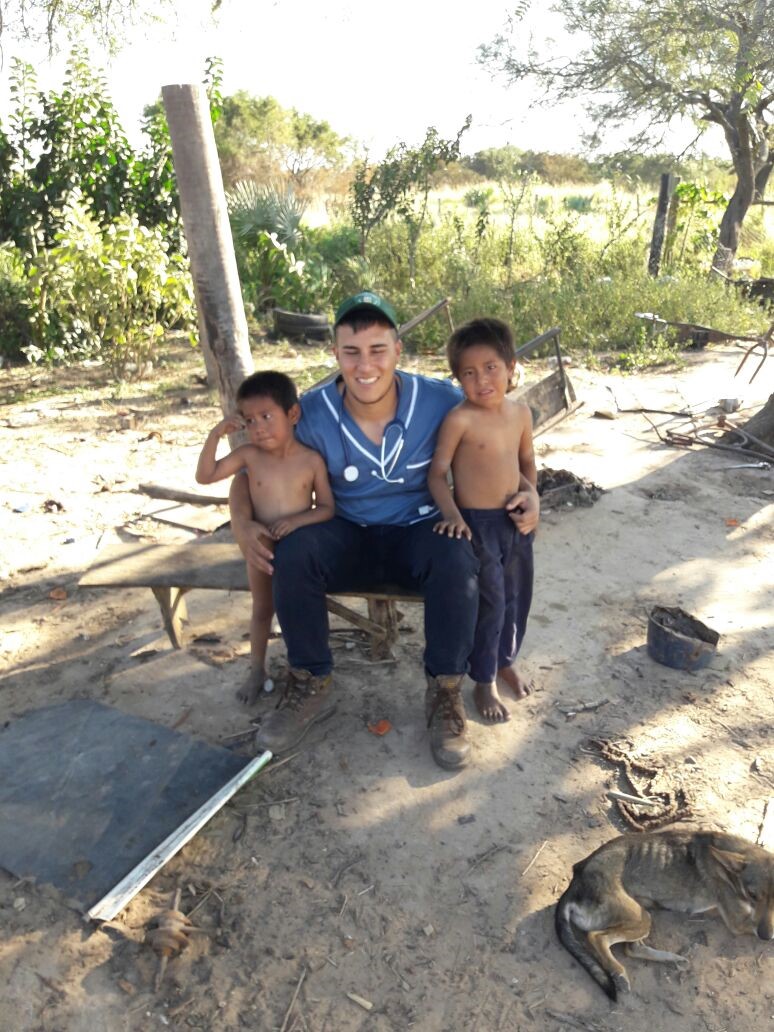 Friendship Mission continues to prioritize providing health care to the residents in a rural Paraguay region known as Gran Chaco. Between February and July of 2018, the Friendship Mission medical team made seven visits to Gran Chaco. Residents of Gran Chaco continue to be very excited about the opportunity for medical care. Many families in the region express thanks that the medical team is willing to come to Gran Chaco, so they are not required to make the long, hard trip to Asuncion while already sick. A typical trip to Gran Chaco includes two full days of twelve continuous hours offering medical care. This year during the visit to Gran Chaco, the medical team was able to provide care to approximately 80 residents in the region.
Friendship Mission continues to prioritize providing health care to the residents in a rural Paraguay region known as Gran Chaco. Between February and July of 2018, the Friendship Mission medical team made seven visits to Gran Chaco. Residents of Gran Chaco continue to be very excited about the opportunity for medical care. Many families in the region express thanks that the medical team is willing to come to Gran Chaco, so they are not required to make the long, hard trip to Asuncion while already sick. A typical trip to Gran Chaco includes two full days of twelve continuous hours offering medical care. This year during the visit to Gran Chaco, the medical team was able to provide care to approximately 80 residents in the region.
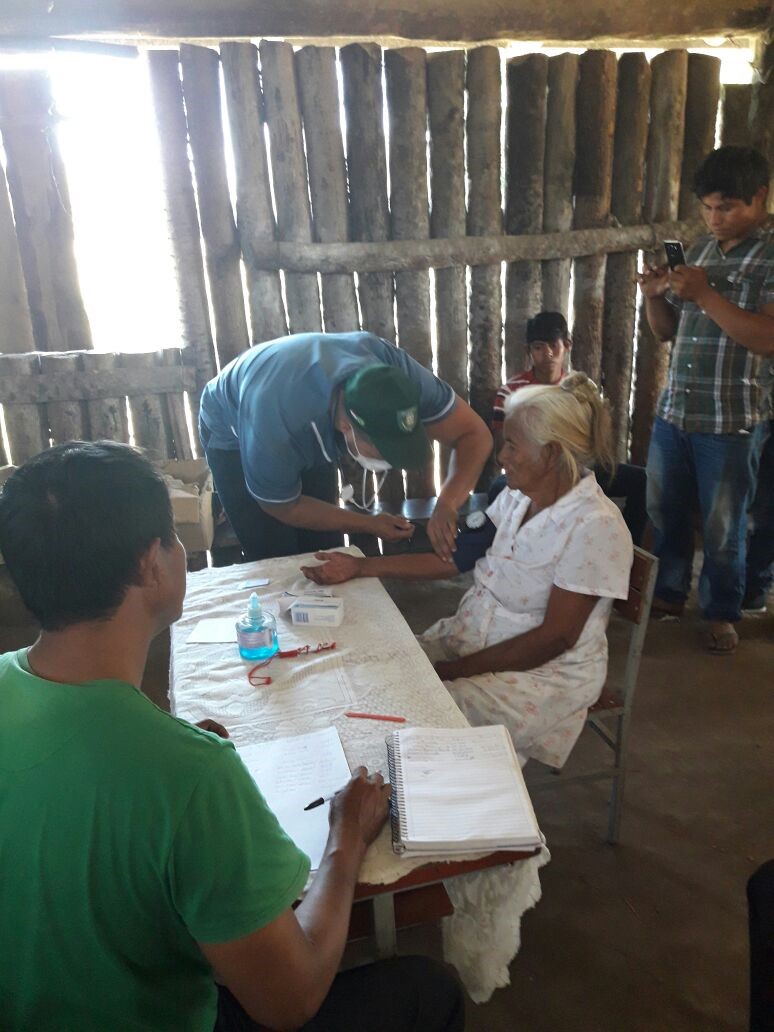 Friendship Mission’s costs for this project include medical professionals, medicine, medical equipment, and transportation, which totaled around $10,000 this year. In the future Friendship Mission would like to increase their level of care for this community. In order to increase their medical presence in the Gran Chaco, the Friendship Mission continues to prioritize the purchase of a large vehicle to use specifically for carrying medical equipment, medicine, and for transporting patients who need additional care to Asuncion. Friendship Mission also hopes to recruit more medical professionals for their medical team. Currently, they are seeking to hire doctors who specialize in women’s health, pediatrics, and eye care in order to treat more needs locally at Gran Chaco. Global Ministries welcomes donations for the continuation of this project and extends thanks to all those who have supported healthcare for the rural population in Paraguay since this project’s start.
Friendship Mission’s costs for this project include medical professionals, medicine, medical equipment, and transportation, which totaled around $10,000 this year. In the future Friendship Mission would like to increase their level of care for this community. In order to increase their medical presence in the Gran Chaco, the Friendship Mission continues to prioritize the purchase of a large vehicle to use specifically for carrying medical equipment, medicine, and for transporting patients who need additional care to Asuncion. Friendship Mission also hopes to recruit more medical professionals for their medical team. Currently, they are seeking to hire doctors who specialize in women’s health, pediatrics, and eye care in order to treat more needs locally at Gran Chaco. Global Ministries welcomes donations for the continuation of this project and extends thanks to all those who have supported healthcare for the rural population in Paraguay since this project’s start.
Update: January 2020
Friendship Mission Clinic
In 2019 the Friendship Mission Clinic carried out an average of 917 consultations per month. The Clinic offers medical services in areas of family medicine, cardiology, vision care, head and neck care, audiology, pediatrics, dermatology, minor surgery, gynecology, urology, trauma, nutrition, psychology, physiotherapy, radiology and ultrasound, and dentistry.
A small but important improvement to the Clinic in 2019 was the installation of air conditioning equipment for the waiting room, which has made the waiting room much more comfortable for guests as they arrive at the Clinic.
The Friendship Mission Clinic continues to offer fine arts workshops for teens and children in areas of guitar, piano, painting, and early musical stimulation for small children. The Clinic hopes to teach the youth of the local neighborhood that art is a gift from God. The Clinic’s goal is to expand the range of workshops in 2020 to include theater, photography, and dance.
The Clinic continues to offer a sports program for families in the local neighborhood. The Pinoza neighborhood where the Clinic is located has only one public park, so the sports field at Friendship Mission offers families opportunities for sport as well as a place to walk and enjoy recreational activities. The Friendship Mission sports complex has a tennis court where people also play basketball, indoor soccer, or volleyball. It also has a field with synthetic grass.
In the future, the Friendship Mission Clinic needs to replace several pieces of their aging medical testing equipment such as the x-ray, bone density, and mammogram machines.
Medical Assistance to Indigenous people of Caazapá
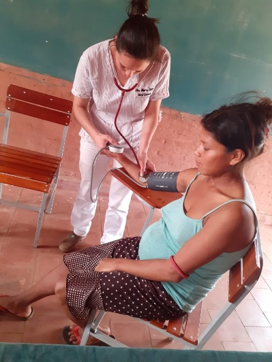 Friendship Mission began a new extension medical ministry with indigenous communities – Mby`a – Guaraní – in the region of Caazapá. A first delegation consisting of several national and regional governmental representatives, church representatives, and Friendship Mission representatives traveled to the region. This delegation began by meeting with local community leaders to identify those areas that present some of the greatest health issues for the communities.
Friendship Mission began a new extension medical ministry with indigenous communities – Mby`a – Guaraní – in the region of Caazapá. A first delegation consisting of several national and regional governmental representatives, church representatives, and Friendship Mission representatives traveled to the region. This delegation began by meeting with local community leaders to identify those areas that present some of the greatest health issues for the communities.
This meeting was very helpful, and several issues were identified, one of which was access to medical care because of the communities’ rural location.
It was agreed at this meeting that Friendship Mission would assist the communities by providing on-site medical assistance which began in July of 2019. Dr. Belén Vera helped to carry out this program. In July the medical team saw 56 patients, 36 patients in August, 75 patients in September, and 48 patients in October. The number of patients rose in September because nearby forest fires led to many patients with respiratory issues. In total 265 cases were treated. The clinic also provided each patient a lunch when they visited.
The Mby`a-Guaraní people are experts in the use of natural medicine that goes hand in hand with community prayer in their temple for the sick. They accept the contributions of western medicine, but they do so as a last resort. The Friendship Mission Clinic, is recognized by the Mby`a-Guaraní people to be an entity in the middle. As such, the Friendship Mission Clinic personnel are able to help community leaders gain access to things like vitally needed medications.
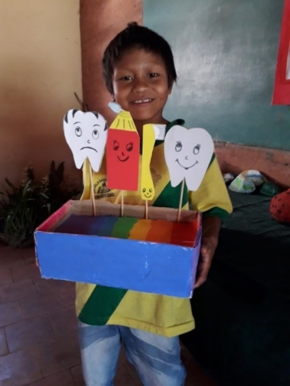
The Friendship Mission personnel have developed a health plan for school children in Caazapá. This new health program has the support of the teachers of the school who will put it into practice. The program is responsible for providing two basic elements for cleaning: soaps for washing clothes and for bathing, and brushes and toothpaste for oral hygiene. In July the plan was approved by parents; and because it was cold at the time coats were delivered to the schools in the community. In August soaps were given out to be used at the schools and at home. In September personal hygiene kits were delivered. The schools then requested more soap and hygiene kits to replace what had been used and those were delivered in October and November.
Friendship Mission, in cooperation with the Churches Committee for Emergency Aid, is very active in public advocacy supporting indigenous leaders who come to Asunción to advocate for their rights. These leaders often face many levels of state bureaucracy, and at times inaction, but have had some success in seeing that their needs are met.
In the future Friendship Mission plans to continue to provide preventive health programs. Friendship Mission hopes to learn from the experience of implementing the health education program in the schools in Caazapá and bring those lessons to their work in Asuncion as well. They also would like to work with the community in Caazapá to create a dispensary for medications, in order for the local community to have greater access to these needed medications without having to travel long distances.
Update: February 2022
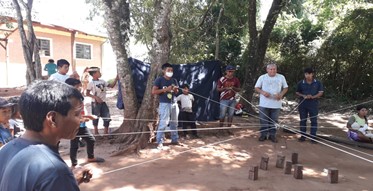
In recent years Friendship Mission has begun walking alongside with the Mby`a – Guaraní people who live in the region of Caazapá, offering basic health care and assistance. To further its presence with these communities Friendship Mission began to work towards offering education on rights and sustainable development. In 2021 Friendship Mission signed a mutual agreement with the recognized leaders of the Paraguayan Institute of the Indigenous and leading members of two Mby`a – Guaraní communities of Kokuere Guasu and Tuna Arroyo Guasu. The agreement calls for Friendship Mission to carry out trainings on sustainable sheep farming and indigenous rights in each community.
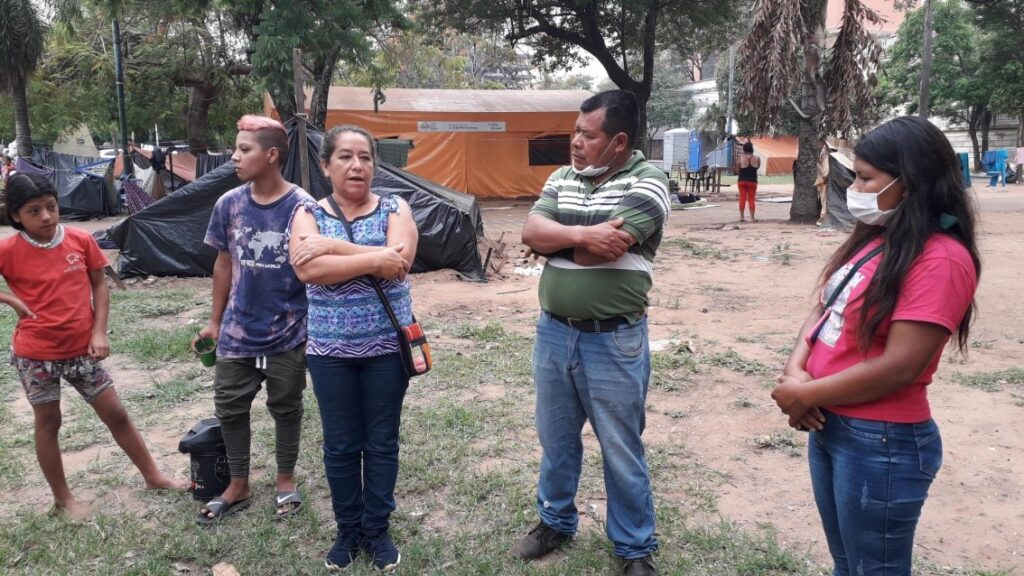
During 2021 Friendship Mission provided training on each of these topics with the help of a lawyer, veterinarian, and educational facilitator brought on to assist with this program. The trainings focused on group engagement and featured hands-on experience. Friendship Mission carried out thirty-two training sessions during 2021, eighteen sessions on Indigenous Rights and fourteen sessions on sheep farming. There are also ten more trainings planned for the first half of 2022.
Once the communities received training on the basics of sheep farming, they organized themselves and built three sheep pens and sheds in both Kokuere Guasu and Tuna Arroyo Guasu. Each group drew upon fellow community members willing to lend assistance such as the skills of a neighboring carpenter and the timber from a neighboring property. In the later part of 2021, the first group of sheep were delivered to each community, forty-six sheep in all.
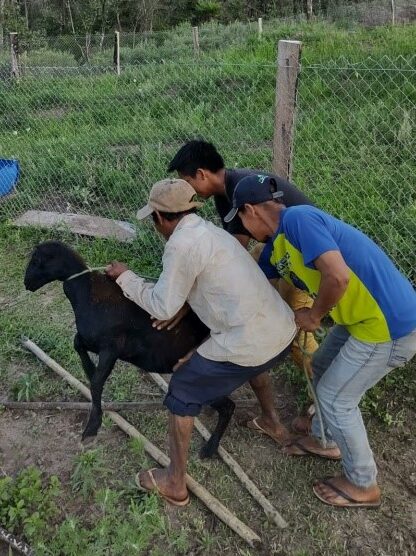
The trainings on Indigenous rights in Paraguay helped participants to develop knowledge about their rights as Indigenous people in Paraguay and how those rights might be used and applied. A training trip was organized which took a group of students from Kokuere Guasu to Asuncion to visit and speak with Paraguayan Government officials as well as leaders from the Institute of the Indigenous. For most of the students, this was their first visit to Asuncion. Due to several planning and organizational conflicts, a similar trip for students from Tuna Arroyo Guasu has been postponed but should take place in early 2022.
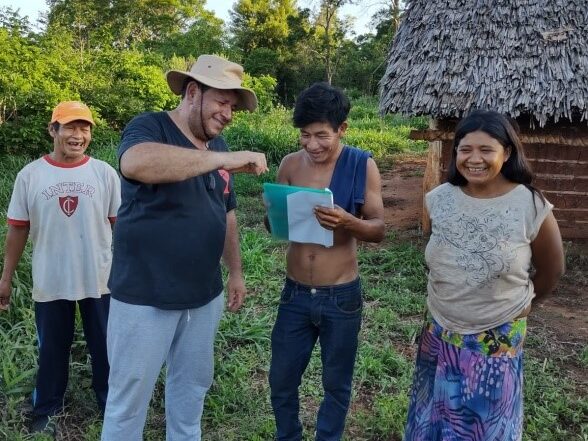
Moving forward, Friendship Mission plans to continue these programs and develop them further. Friendship Mission plans to deliver more sheep and continue its agricultural training with each community. To further the indigenous rights education program, Friendship Mission and leaders from each community plan to organize joint visits to local governmental authorities advocating for the right of native peoples to ancestral territories. They plan to request a signing of an agreement between the parties to apply an exemption of municipal taxes for indigenous communities as is stated in their constitutional rights and agree to the creation of a specialized Director of Indigenous Affairs who would be an official elected by the Mby’a – Guaraní people. Friendship Mission looks forward to its continued relationship with these two communities and believes it will strengthen and broaden its relationship with other Mby’a – Guaraní communities as well.
Below is a video from the Mby’a – Guaraní people which it shows the original dance of Jamandu (God) – the dance that creates and sustains the cosmos.
Support this Ministry
To make a gift for this ministry online or by check use the online donation page.
- 100% of your gift will be directed to Friendship Mission
- You will receive updates on the work in this area as they become available
- Share in the vision of God’s abundant life for all people
Partners
Related Content
Statement on the break in at the headquarters of the Christian Ecumenical Council of Guatemala
En Espanol “…Live in harmony with one another, sharing in each other’s joys and sorrows,...
Read MoreHouse of Hope in Haiti: ‘We Must Act’
Since the assassination of President Jovenel Moise in 2021, Haiti has seen a rise in gang activity...
Read MoreA message of solidarity with the Lutheran Synod of El Salvador after the passing of Bishop Medardo Gomez
Please join Global Ministries in prayer with the Lutheran Synod of El Salvador. Dear Bishop...
Read More
